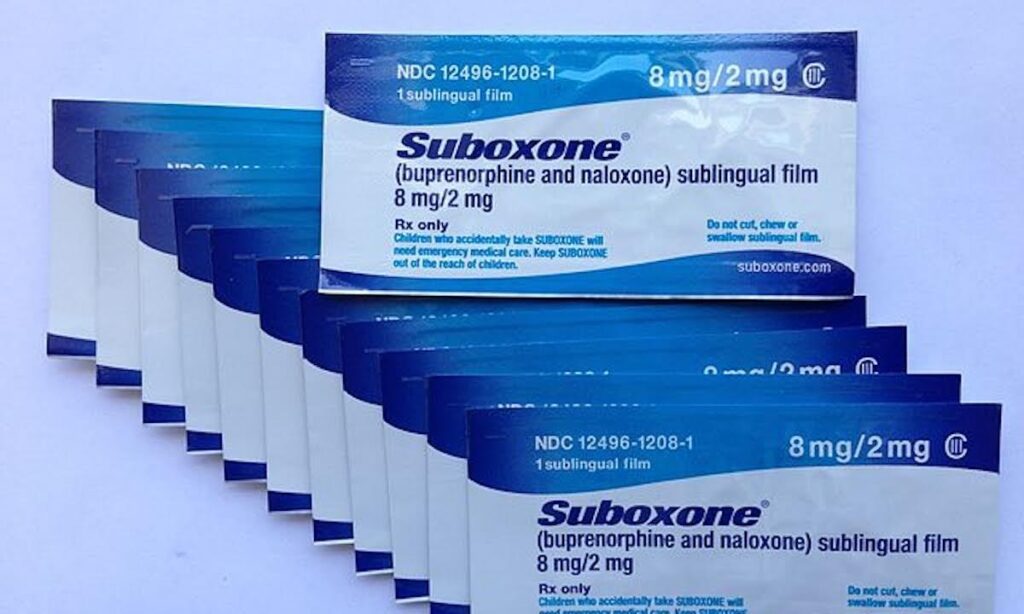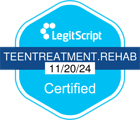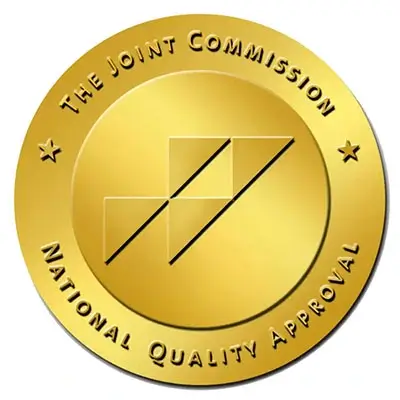Alcoholism is a common addiction that recovery specialists face. There are a host of treatments available to help those who are dealing with an alcohol dependency.
Because alcoholism can vary so much from patient to patient, the treatment methods used can vary as well. Some of these involve intervention and counseling. Other more severe cases may need medication and in-patient care.
While Suboxone is widely known for treating opioid addiction, its role in alcohol dependence is a topic of interest among healthcare professionals. One of the medications people ask about when dealing with alcohol addiction is Suboxone. It’s commonly used to deal with withdrawal from opioids, but it can have other uses as well.
However, mixing Suboxone and alcohol can be dangerous and is generally not recommended. Below, we’ll explain what Suboxone is, if it can help with alcohol withdrawal, and go over other medications that may be used in alcohol addiction treatment.
What Is Suboxone?

Suboxone is a mix of two different medications, buprenorphine and naloxone. They work together to help curb withdrawal symptoms that can occur when quitting opioids.
Suboxone works by blocking certain receptors normally activated by opioids. This can decrease cravings for the drug as well as reduce withdrawal symptoms.
It is important to understand the effects of drinking alcohol on Suboxone. Combining the two can lead to increased side effects and health risks. Suboxone requires a prescription, and although it is less likely to be addictive than other alternatives, it still poses an addiction risk. So, patients should be under the care of a professional recovery specialist while taking Suboxone.
Some symptoms of alcohol withdrawal can be similar to those of opioids, but Suboxone for alcohol dependence or withdrawal symptoms is not currently a recognized treatment. While some patients have reported its use to be of benefit, the manufacturer of Suboxone does not recommend it for this use.
Despite some interest in using Suboxone for alcohol addiction, more research is needed to establish its efficacy and safety in this context. However, other medications can be used for the treatment of alcohol withdrawal, and we’ll go over that in the following sections.
What Is Alcohol Withdrawal?
Withdrawal from alcohol is known as alcohol withdrawal syndrome (AWS). This is a series of unpleasant symptoms your body will go through when you quit drinking alcohol after a period of regular usage.
The severity of AWS can vary greatly and depends on the amount of alcohol consumed and the length of time that the chronic drinking occurred.
Some of the milder symptoms of AWS can include:
- Nausea
- Anxiety
- Headaches
- Vivid dreams
- Fatigue
- Sweating
- Cravings for alcohol
When patients have been drinking for extended periods, such as years, the withdrawal symptoms can be more severe.
Common symptoms of acute AWS:
- Disorientation/confusion
- Mood swings/anger
- Hallucinations
- Seizures
Some of these more severe symptoms can occur suddenly and at the same time. This condition is generally referred to as delirium tremens (DT). DT can include a sudden onset of confusion, shaking, delirium, and seizures. This condition is very serious and considered a medical emergency.
If you are someone you know is experiencing severe alcohol withdrawal, you should contact a medical professional immediately.
What Medications Are Used to Treat Alcoholism and Withdrawal?

When seeking professional treatment for alcoholism, the first step will usually be a detox period. This can last anywhere from two days up to a week. During this time, the patient will be monitored, and they may be prescribed a sedative.
The most common medications during this period will be benzodiazepines. Benzos help to alleviate some of the more unpleasant symptoms of AWS. Once the detox is complete, the patient will be weaned off of these sedatives until they are no longer necessary.
After the initial detox phase, the patient enters a period of counseling and behavioral modification therapies. This helps them deal with underlying issues related to their drinking, as well as learn tools to help deal with cravings and other triggers.
During this phase of treatment, certain additional medications may be prescribed to help prevent cravings and the chance of relapse.
Disulfiram (Antabuse)
When taken, this medication causes extremely unpleasant symptoms if the patient drinks alcohol. These symptoms can be vomiting, sweating, and rapid heart rate. The goal is to dissuade the patient from drinking due to the uncomfortable side effects caused by the drug.
Disulfiram works by interfering with the body’s natural process for breaking down alcohol once consumed. This causes your body to have a strong negative reaction shortly after drinking.
Acamprosate (Campral)

This medication has been shown to reduce cravings for alcohol. It also helps to ease some withdrawal symptoms, such as insomnia, anxiety, and other milder symptoms.
The patient must have already quit drinking before starting treatment with acamprosate. Overall, the drug works best when used in conjunction with a proper addiction treatment program.
Naltrexone (Revia)
This medication binds with certain receptors to decrease cravings for alcohol. If the patient does still drink, the pleasure from drinking is often decreased to Naltrexone, which further works to dissuade drinking.
Due to Naltrexone sounding similar to the drug in Suboxone (Naloxone), these two drugs are often confused. This is part of the reason some people may think of using Suboxone to treat alcoholism.
Naltrexone also comes in an injectable form that a doctor or licensed practitioner administers. The injections are generally performed once a month. The reason for injections is that they help with patient compliance if it is too difficult for them to take the oral version regularly.
Can Suboxone Treat Alcoholism?
In short, the answer is no. While several medications can be effective when dealing with alcohol withdrawal and cravings, Suboxone is not one of them. Some people may wonder about buprenorphine and alcohol interactions, especially when considering buprenorphine for alcohol use disorder. Current medical guidelines do not support this use though.
It’s important to note that it’s not uncommon for those dealing with addiction to be addicted to several substances when seeking treatment. This may include the use of opiates and alcohol, which will both require treatment, and Suboxone may be used in those cases.
Patients should be cautious about drinking with Suboxone. Alcohol can interfere with the medication’s effectiveness and increase the risk of side effects. If any medications are needed, they always need to be prescribed and monitored by a medical professional with experience in addiction and recovery.
More Information About Alcoholism and Treatment

Alcohol addiction can be a complex disorder that varies greatly between individuals. The symptoms and signs of addiction can also vary as some individuals may be able to function at a high level despite being addicted. However, even if functioning, the immense physical and mental health damage remains.
Alcoholism not only affects the individual but also has significant impacts on families and communities. Early intervention and comprehensive treatment plans are essential for effective recovery. Understanding how risky it is to combine medications like Suboxone and alcohol is vital for those being treated for multiple substance dependencies.
The Road to Recovery Starts Here
In conclusion, while Suboxone is an effective treatment for opioid addiction, it is not recommended for treating alcohol dependence or withdrawal. Mixing Suboxone with alcohol can be dangerous and should be avoided.
For those struggling with alcohol addiction, there are proven medications and therapies available that can help you recover. It’s important to consult professionals to find the best course of action for your needs.
If you or someone you know is suffering from alcohol addiction, the Hope Institute can help. We use the latest treatments to aid in the recovery process. We use different approaches, each tailored to the individual, to make the journey to sobriety as smooth as possible.
Contact The Hope Institute today and speak with our caring and compassionate staff about alcohol addiction treatment and what we can do for you.
FAQs on Suboxone for Alcohol Abuse
Does Suboxone help with alcohol cravings?
No, Suboxone does not help with alcohol cravings. It is designed to treat opioid dependence and has not been shown to be effective in reducing cravings for alcohol.
Will Suboxone help with alcohol withdrawal?
Suboxone is not approved for treating alcohol withdrawal symptoms. Medications like benzodiazepines are typically used under medical supervision to manage alcohol withdrawal.
Is Suboxone used for alcohol withdrawal?
No, Suboxone is not used for alcohol withdrawal. It is specifically intended for opioid withdrawal and addiction treatment.
Can you drink while taking Suboxone?
It is strongly advised not to drink alcohol while taking Suboxone. Combining alcohol with Suboxone can increase the risk of dangerous side effects, including respiratory depression and impaired judgment.
Sources:


